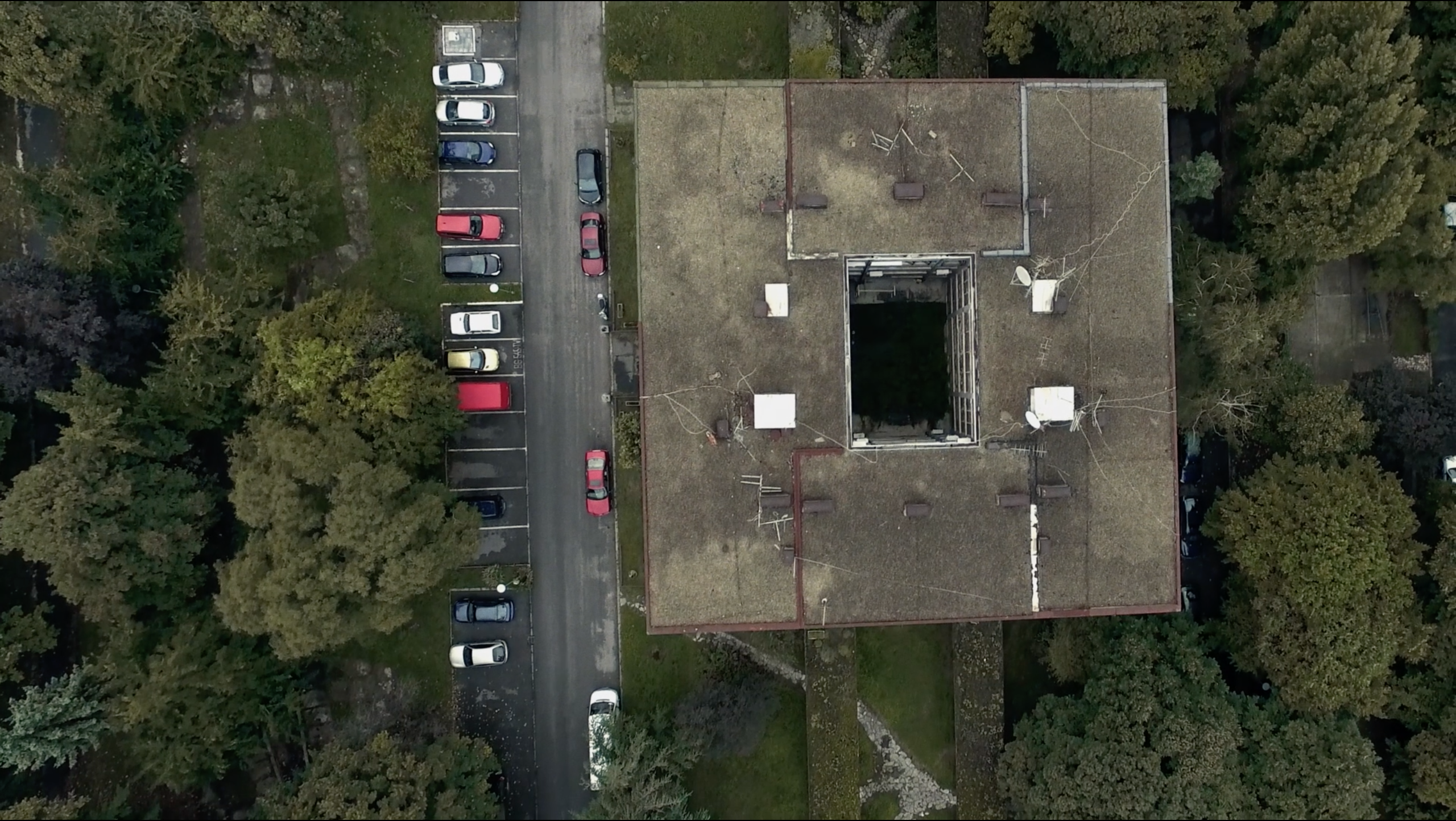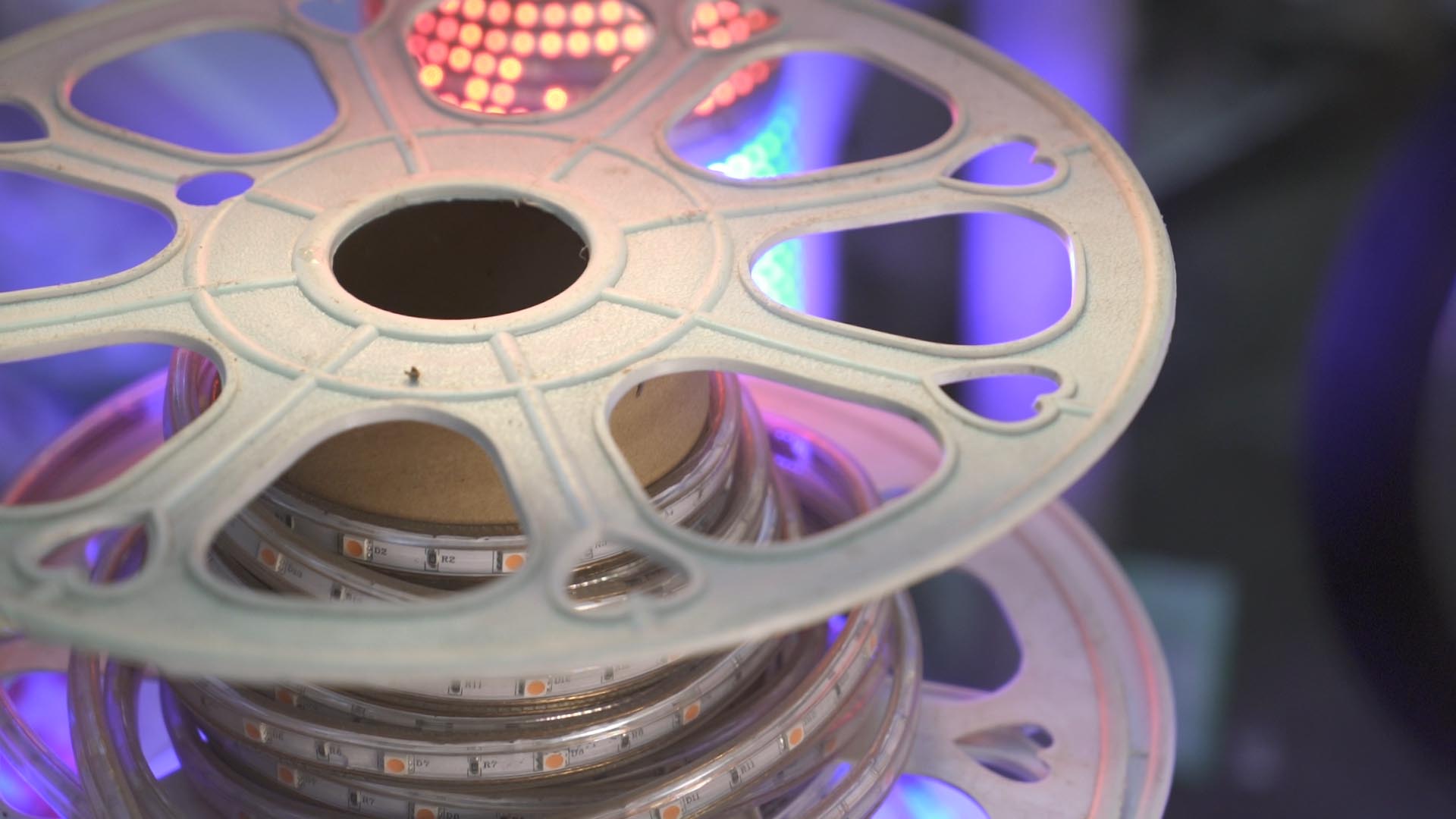15. April

Melancholic Drone
Igor Simić,
7’, 2018
During his last morning in Belgrade, a military drone reflects on his wasted existence as a drone out of combat, while flying on autopilot to a couple having sex, a route his previous operator would take to spy on them.
RS
Melanholični dron / Melancholic drone - Tokom svog poslednjeg jutra u Beogradu, vojni dron promišlja o svom protraćenom postojanju kao bespilotne letelice koja nije bila u borbi, leteći na autopilotu do para koji ima seks, rutom kojim ga je prethodni operater vozio ne bi li ih špijunirao.
.jpg)
the_other_images
Iris Blauensteiner,
17’, 2018
A hard drive, 2.8 terabyte leftover data from a project that was shot 10 years ago. In 2008, the author and filmmaker Iris Blauensteiner made her first short movie. Now she sifts through this waste material: outtake scenes, photographs, sound files, e-mails, script passages, discarded ideas. This data was archived and well stored, but time has taken its toll. Old data formats cannot be played anymore because they are no longer compatible with current players. The multitude of read errors and image distortions disallow a comfortable recollection of the past, the pictures and sounds are not what they used to be. Ghostly, eerily magical scenes arise from the digital waste material and read errors, they reach into the visible and audible spectrum. Memories are recycled. They require a different cinematic experience, a new narrative, a different film.
„the_other_images“ is an experimental documentary short film. It raises the question how memory and remembering is possible when all the digital storages fail or cannot be accessed, postulating a possible answer in form of recycling and reutilizing the digital archive.
„Using mutated, nearly illegible material that is marked by decay, Iris Blauensteiner negotiates the potential of rejected images and the issue of storing digital memories: a desktop movie – (hi)stories of twenty-first-century cinema.“ (Michelle Koch, Diagonale Catalogue, 2018)
RS
the_other_images / one_ostale_slike - Hard-disk, 2,8 terabajta otpalih podataka iz projekta snimljenog pre 10 godina. Godine 2008. godine autorka i režiserka Iris Blauenštajner snimila je svoj prvi kratki film. Sada ona prebire kroz ovaj otpadni materijal: scene izlaska, fotografije, zvučne datoteke, e-mailove, odlomke iz skripti, odbačene ideje. Ovi podaci su arhivirani i dobro čuvani, ali vreme je učinilo svoje. Stari formati fajlova više se ne mogu reprodukovati, jer nisu kompatibilni sa aktuelnim plejerima. Mnoštvo grešaka u čitanju i izobličenja slika onemogućavaju ugodno sećanje na prošlost, slike i zvukovi nisu ono što su nekada bili. Jezovite, sablasno magične scene izdižu se iz digitalnog otpadnog materijala i grešaka pri čitanju, sežući u vidljivi i čujni spektar. Sećanja se recikliraju. Oni zahtevaju drugačije kinematografsko iskustvo, novi narativ, drugačiji film. the_other_images / one_ostale_slike je eksperimentalni dokumentarni kratki film. Postavlja pitanje kako je moguće pamćenje i sećanje kada sva digitalna skladišta propadnu ili im se ne može pristupiti, postulirajući mogući odgovor u vidu recikliranja i ponovne upotrebe digitalne arhive. „Koristeći mutirani, gotovo nečitki materijal koji je obeležen propadanjem, Iris Blauenštajner pregovara o potencijalu odbačenih slika i pitanju čuvanja digitalnih uspomena: film na desktopu - (i)storije o bioskopu dvadeset prvog veka.“ (Michelle Koch, Diagonale Catalogue, 2018)

Cinema Crystal
Marlies Pöschl,
14’30’’, 2017
Laleh Zar — a street located in the city centre of Tehran, formerly home to many cinemas, and often seen as a symbol for the modernisation of Iran — is today characterised by a multitude of luminous elements, which are offered for sale alongside the street. The flow of images through light — cinema — seems to have broken apart into a variety of different light sources after the changes that the Iranian revolution has brought about.
“Cinema Cristal” recombines these different lustrous fragments into a new composition, a texture of light, linking the historical moment it refers to with the moment of the film’s exposure. On the soundtrack film lovers, witnesses, and theoreticians tell their memories, stories, and homages related to Tehran’s cinemas. A film about the role of cinema as an aesthetic, social, and memorial space. And about the spectators as central characters.
RS
Cinema Cristal / Bioskop Kristal - Laleh Zar - ulica koja se nalazi u centru grada Teherana, u kojoj su se nekada nalazili brojni bioskopi, a često je doživljavana kao simbol modernizacije Irana - danas karakteriše mnoštvo svetlosnih elemenata koji se nude na prodaju kraj ulice. Čini se da se protok slika kroz svetlost - bioskop - raspao na mnoštvo različitih izvora svetlosti nakon promena koje je donela Iranska revolucija. „Bioskop Kristal“ kombinuje ove različite svetlucave fragmente u novu kompoziciju, teksturu svetlosti, povezujući istorijski trenutak na koji se odnosi sa trenutkom ekspozicije filma. Slike prate zvučni zapisi u kojima ljubitelji filma, svedoci i teoretičari pričaju svoja sećanja, priče i omaže povezane sa teheranskim bioskopima. Film o ulozi bioskopa kao estetskog, socijalnog i memorijalnog prostora. I o gledaocima kao centralnim likovima.





